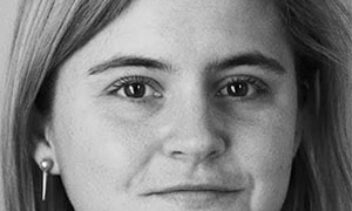Philo Judaeus is an important voice on the decision to leave Orthodox Judaism today. Philo (a pseudonym) and his wife left Orthodox Judaism after decades of living in that community, and he has since been active in online conversation between Orthodox Jews and the once Orthodox, most notably in the Facebook group he moderates, Frum-OTD Dialogue. As an authoritative writer about decision making, the open letter put out by Philo and his wife about their decision to leave Orthodoxy puts forth a clear formulation of the complexity and depth of leaving the Orthodox community. In this week’s Weekend Reader, read the important takeaways from Philo’s open letter and his recent interview with 18Forty founder David Bashevkin, available here.
Myth: Leaving Orthodoxy is easy.
As a sharp thinker and open conversationalist, Philo often upsets the myths, unfair characterizations, and caricatures of what leaving Orthodoxy looks like. Leaving, for many, is not the easy way out, nor is it the road of least resistance. The ways Orthodox Jews speak about those who choose Orthodoxy, as well as those who choose to leave Orthodoxy, speaks volumes. If one is comfortable in their own religious identity, Philo explains, then they need not be threatened by the decision of others to live differently. It does not serve the interests of a comfortable and aspirational religious community to castigate those who leave as inferior or weak—we can choose instead to engage meaningfully and respectfully. Philo points this out in his open letter to the world, about his family’s decision to leave Orthodoxy:
We did not want to stop believing. We did not ask for this, and if we could we’d prefer to stay in the frum community. Leaving seems like a terrible option to us—but all of our other options seem even worse, so we do not see any real alternative except to leave…
Once you learn what we’ve learned, you can’t unlearn it … This is not something we wanted. It would make our lives so much easier if we could just believe, but after years of trying to believe despite what we had learned, in the end we just couldn’t do it.
For many, choosing to leave is the hard decision to make, not the easy one. It is the path of most resistance, not the path of least. Particularly for those from more insular communities, the decision to leave often damages relationships with friends and family, and forces people to reconsider so much of what they know about life.
But it is still the case that smart, rational, intellectually honest people can come to different conclusions about this given the available evidence and arguments.
Myth: Leaving Orthodoxy is not an intellectual decision.
There is a long-running myth that all those who leave Orthodoxy do so because they want the hedonistic pleasures offered by the secular world. While this may be true about some, believing this as a totalistic belief system can be dangerous. Philo embodies a decision to leave that is deeply meaning-driven and thoughtful, and thinking only in terms of hedonism or pleasure-seeking does a disservice to all parties. In his words:
We are not crazy, we have not been physically or emotionally abused, and we are not just running after our taivos (physical pleasures). We have thought about this long and hard, and our careful research has led us to the conclusion that many of the beliefs we grew up with are false. Maybe we’re wrong about our conclusions, but we aren’t crazy.
Thinking of those who leave Orthodoxy as one-dimensional or hedonistic is a dangerous caricaturization of what is a multi-layered and complicated decision, made by many moral and well-meaning people. While it is always threatening to see people make opposing decisions, there is something more deeply challenging to Orthodox people by the decision to leave, as Philo discusses in his letter:
We realize that this can be a very hard point for many people to accept, perhaps too hard. We were brought up to realize that every normal, rational person, if they could only recognize and experience the beauty and depth of the Torah and Yiddishkeit, would embrace Judaism … we were taught that it is only those who nebech (unfortunately) have emotional or mental issues who leave, or who are rebelling against abusive parents, or who are seduced by the allure of the secular world, or who have never truly experienced the beauty of Yiddishkeit to begin with. If an apparently normal, intelligent, well-adjusted person abandons Judaism, then there must be something else going on under the surface that we don’t know about. Anybody who claims to have stopped believing for intellectual reasons is just making excuses, and in reality there is some other more significant reason that they are hiding.
While this perception is understandable and ubiquitous, it does not offer an accurate portrayal of the demands of faith and religious life:
But the fact of the matter is that the arguments and evidence are not as straightforwardly obvious as many kiruv rabbis make them out to be. Perhaps ultimately we really are mistaken about our conclusions, and Judaism really is the one true religion. But it is still the case that smart, rational, intellectually honest people can come to different conclusions about this given the available evidence and arguments.
And in fact, this shouldn’t be too surprising. After all, isn’t there a concept that we need to use our bechira to believe? If belief was something that every rational person would necessarily and easily come to, then where would that leave much room for bechira? There is also a concept according to many rishonim and acharonim that emunah peshuta is a good thing, and that looking into the basis for our beliefs can be a very dangerous thing to do even for otherwise normal people. Clearly, these sources think that it is possible for well-meaning people to look into the basis of the religion and come to the conclusion that it’s not true—which means it can’t be quite so obvious that the religion is true.
While religious people choose to make the leap of faith that fuels religious life, it is both feasible and important to respect those for whom that leap is more complicated.
Myth: There is no meaning in a life without religion.
Life after Orthodoxy, like life in Orthodoxy, is layered and complicated, and one can be moral and valued in a life without faith. In his letter, Philo says that:
We were raised to think that only believers could be really good, moral people. We were also taught that the secular world is a cesspool of violence, immortality, and meaningless. But in the past few years we have come to know plenty of extremely moral, upstanding, wonderful nonreligious people. We have also come to know the secular world better, and we have talked to many people who we trust about the differences between the religious and the secular world, including the potential pitfalls of the secular lifestyle. They all assure us that the secular world is not nearly as depraved as many frum people make it out to be. There are some pretty bad places to live, and there are some schools that nobody wants to send their children to. But there are also plenty of nice communities where people are just … normal. Not blindly running after their taivos. Not steeped in depraved materialistic meaninglessness. Just regular, good, ethical, normal people.
We still have many reservations about certain secular values and certain aspects of secular culture, and we are going to try hard to give over to our children many of the frum values with which we were raised. For example, we are going to try hard to instill the importance of family, good middos, chessed, and not chasing after taivos or materialism (Although to be honest, all of those values are pretty common in many secular communities, and they are unfortunately lacking in many frum communities.) We are also planning to direct a significant part of our time and income towards altruistic causes. We are not suddenly losing our values, and we are not about to suddenly go chasing after our hedonistic taivos.
Speaking with Philo is a lesson in deep, real engagement with the philosophical issues that surround religion, faith, and Judaism. Philo’s journey pushes everyone, religious or not, to think more seriously and deeply about their own religious lives, and to be more open and receptive to the decisions of others. His voice reminds us to be more thoughtful about ourselves and others, and the importance of respecting the decisions of others. In his conversation with 18Forty, he points out the dangers of shallow thinking about why people leave:
It’s often actively harmful to misdiagnosis why someone left. If you relate to them on the assumption that they left because they want cheeseburgers and partying … And really they left for something completely differently, maybe because they’re gay, or maybe because intellectual reasons, you’re going to do it completely wrong. Your relationship with them will be completely off balance if you do it that way…
Whether you stay or leave, respect all, above all else.
For more on this topic, visit 18forty.org/otd








